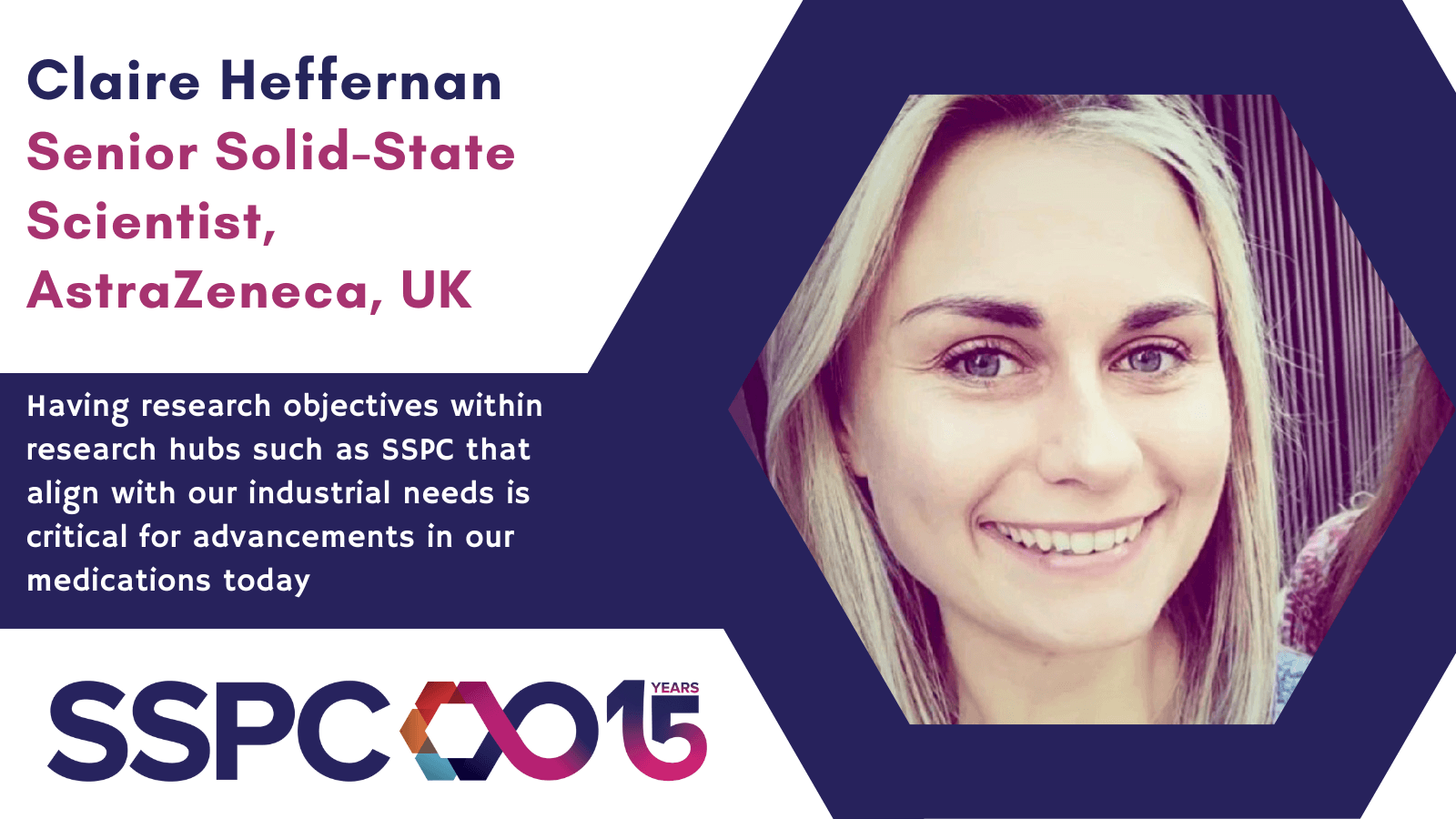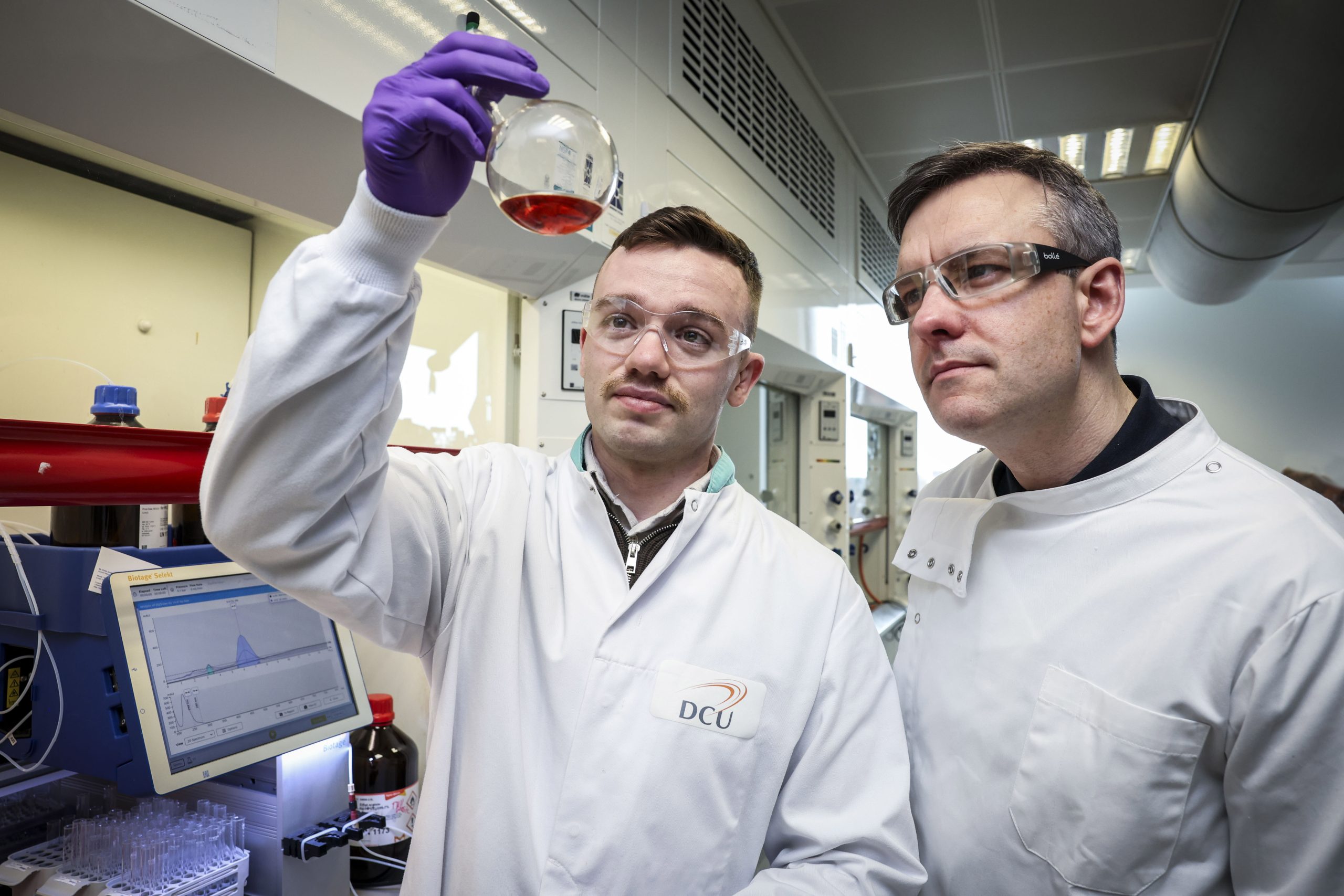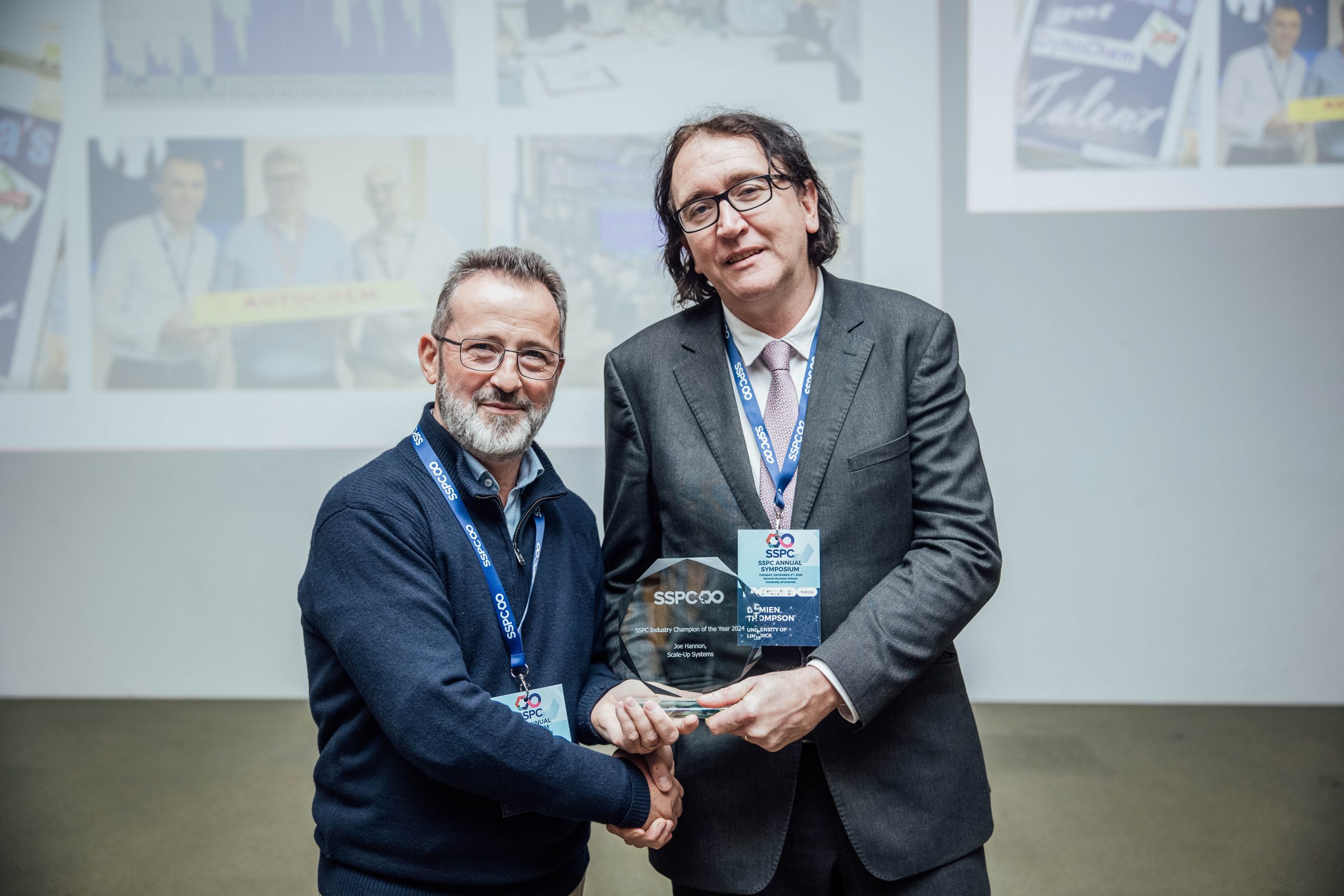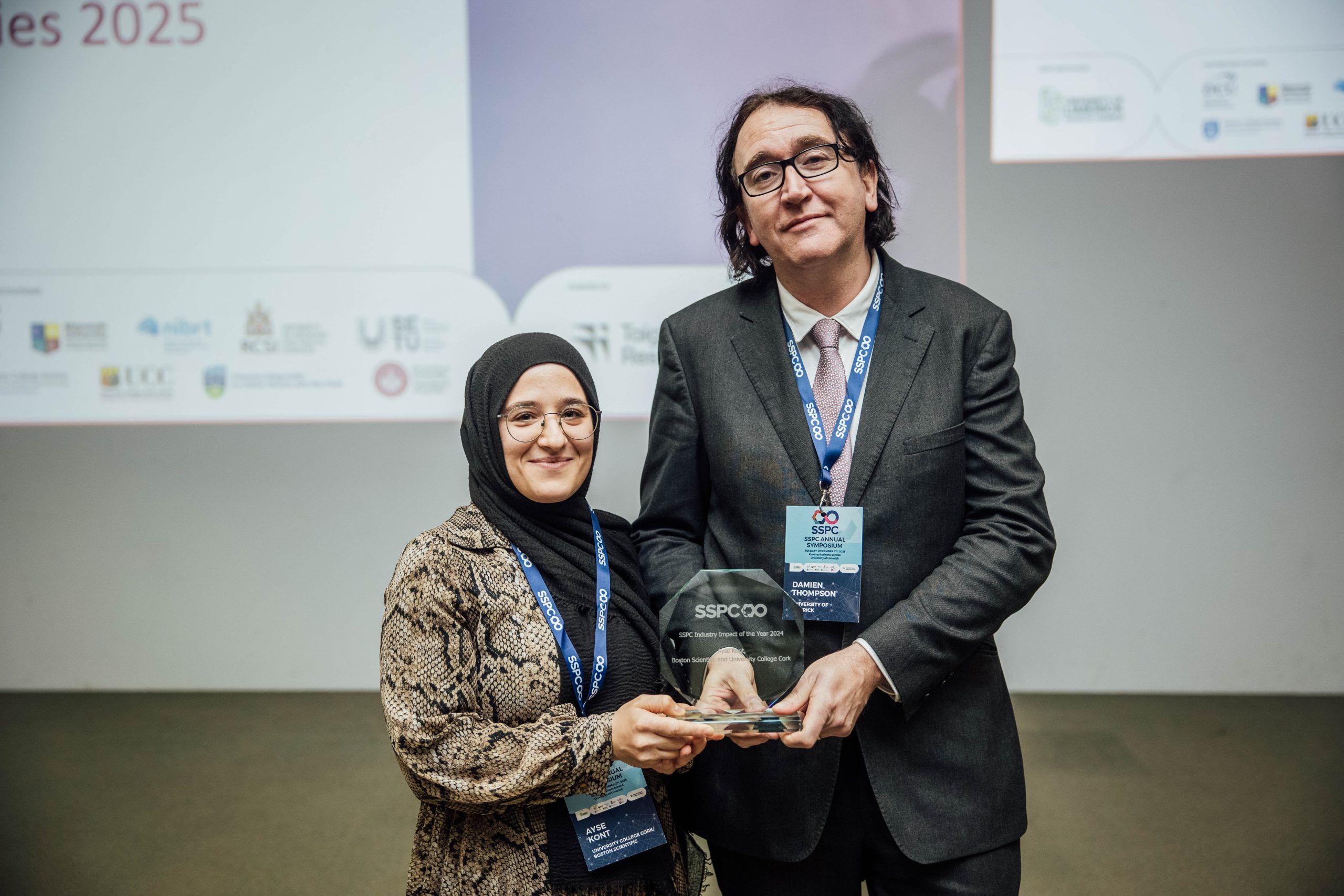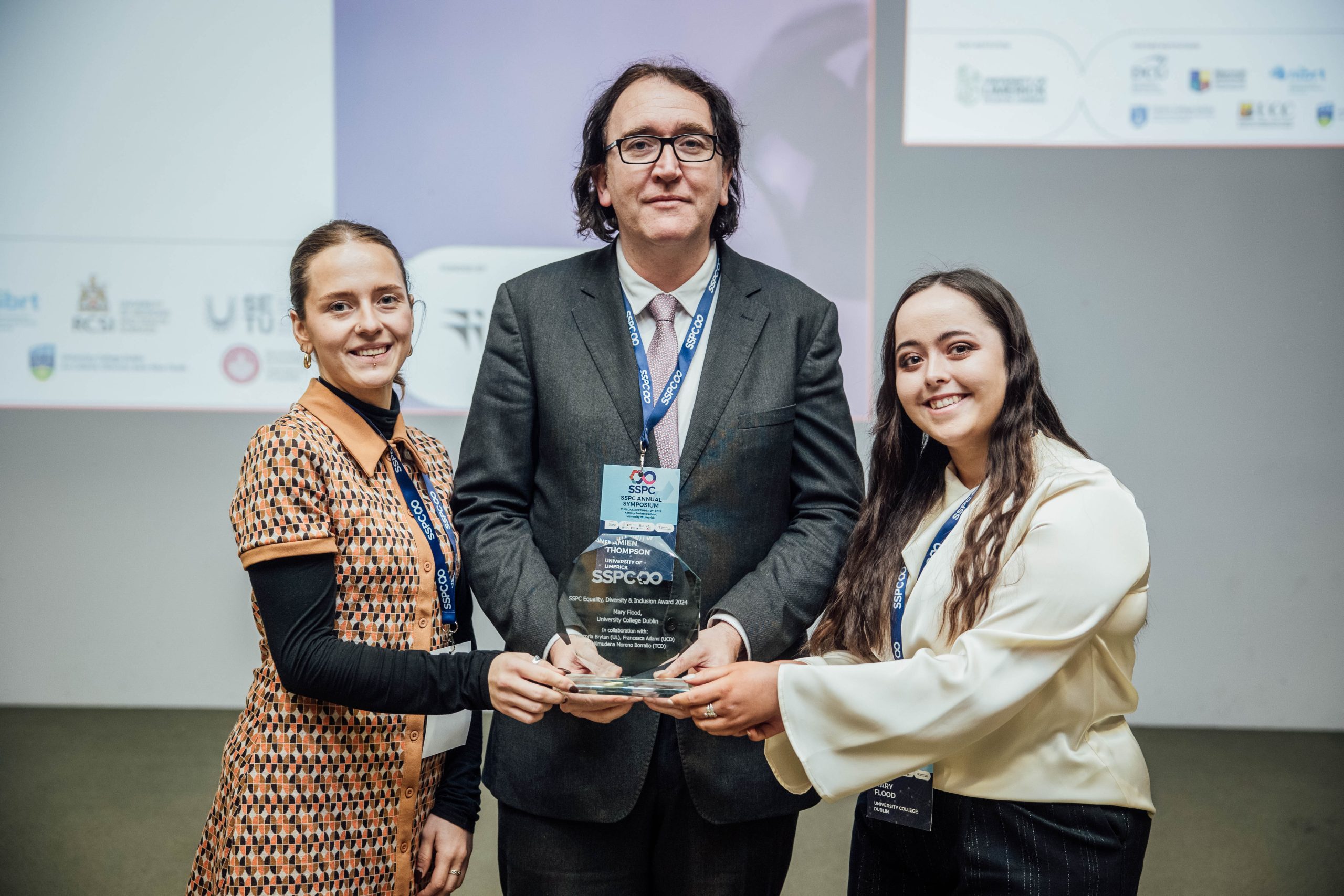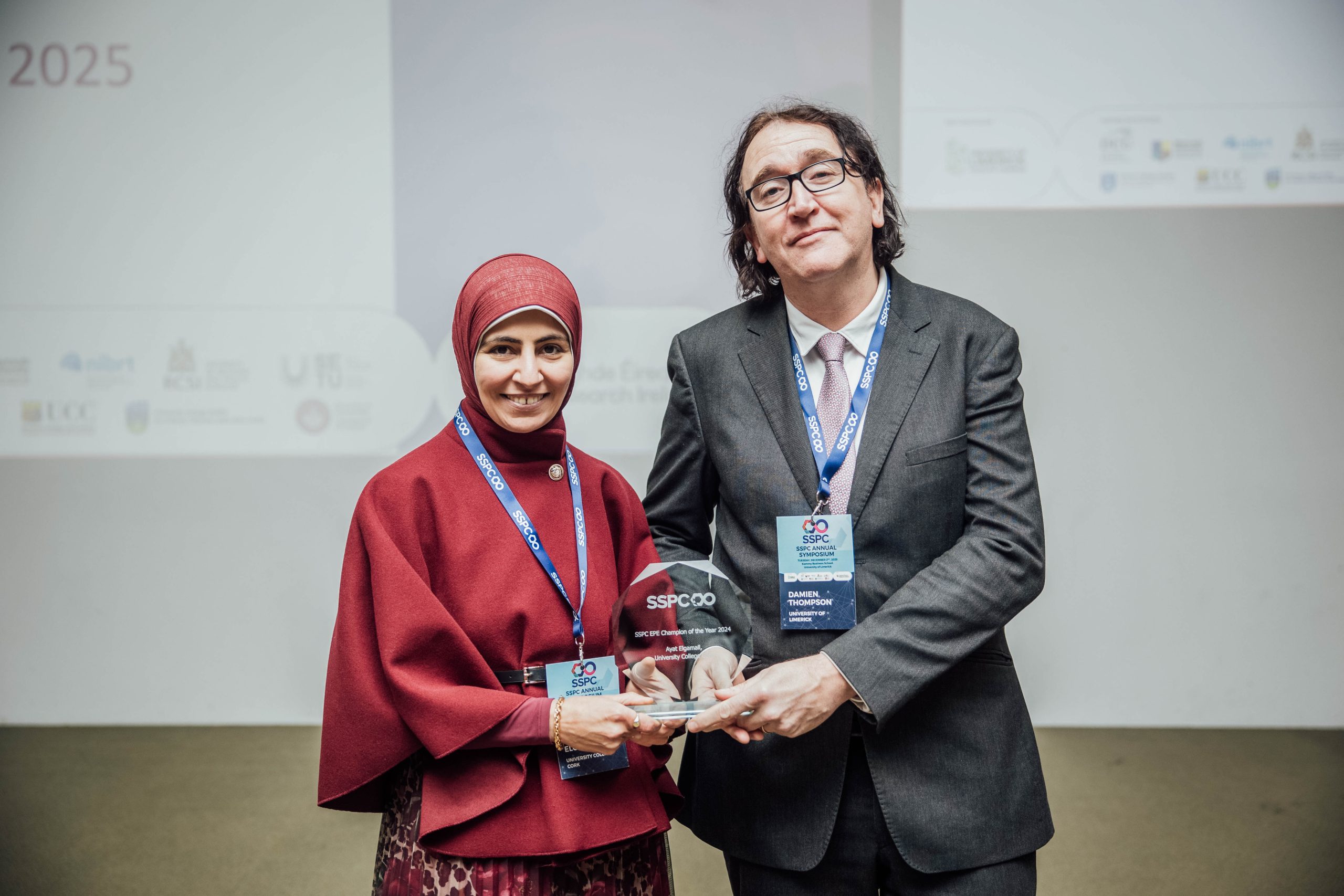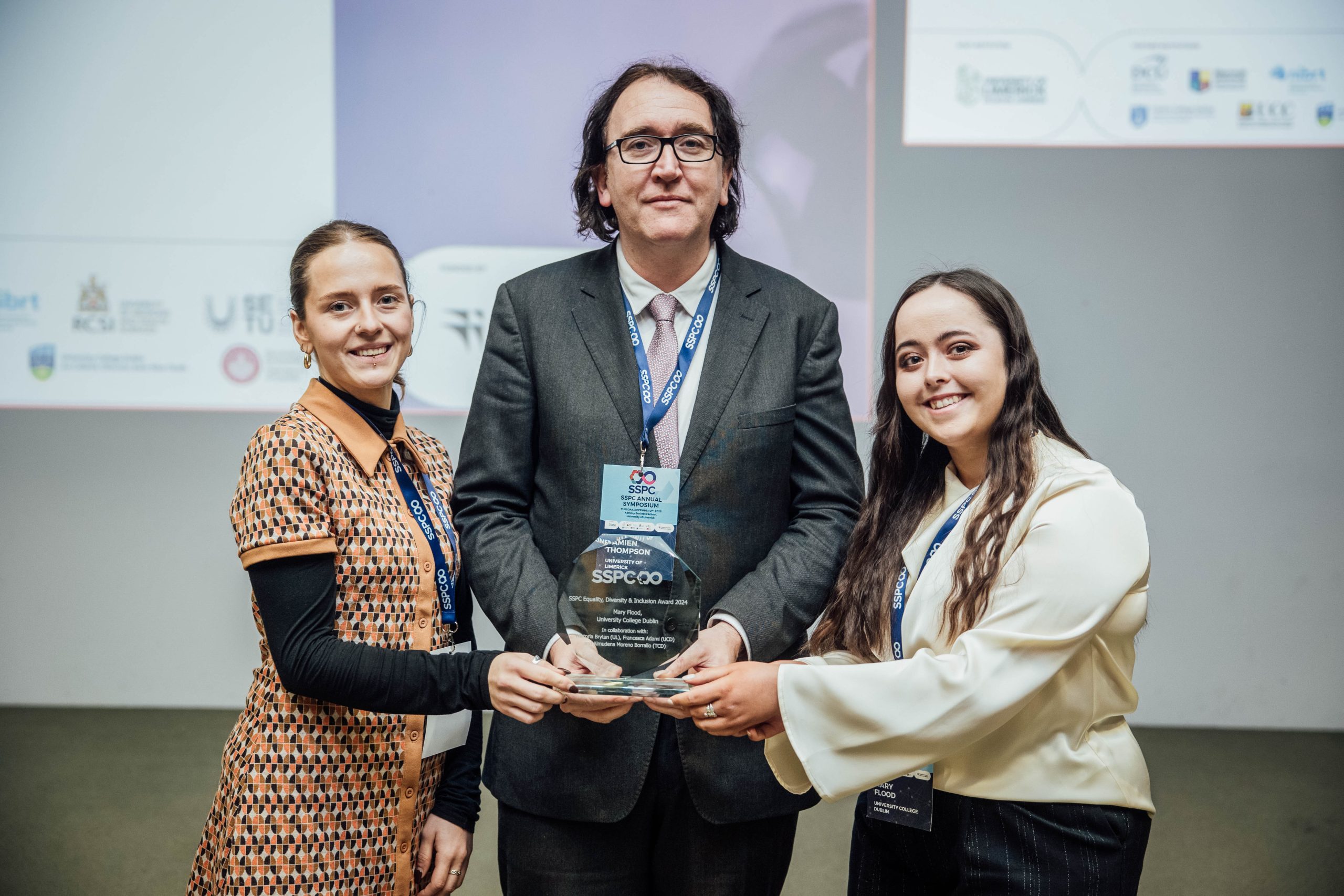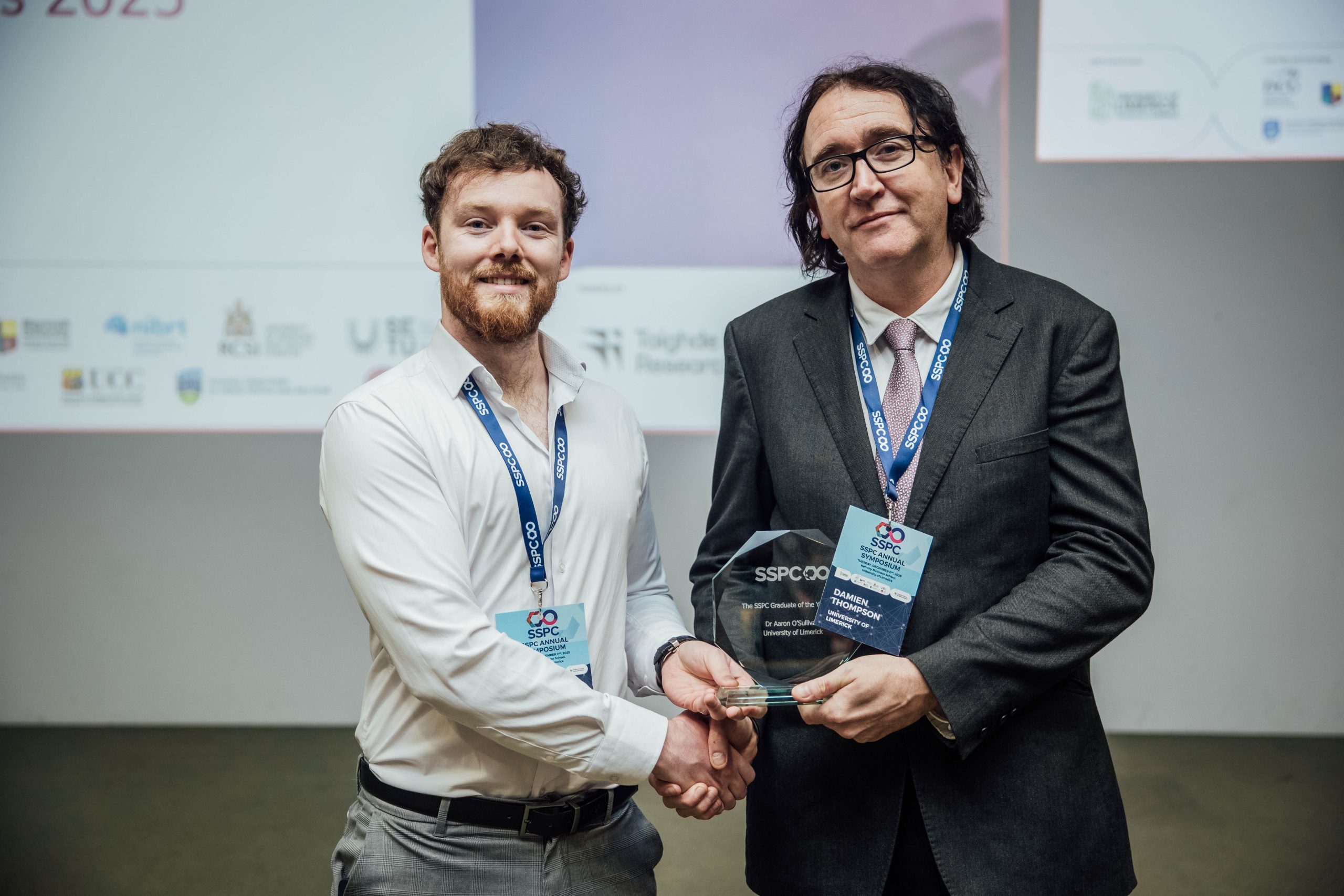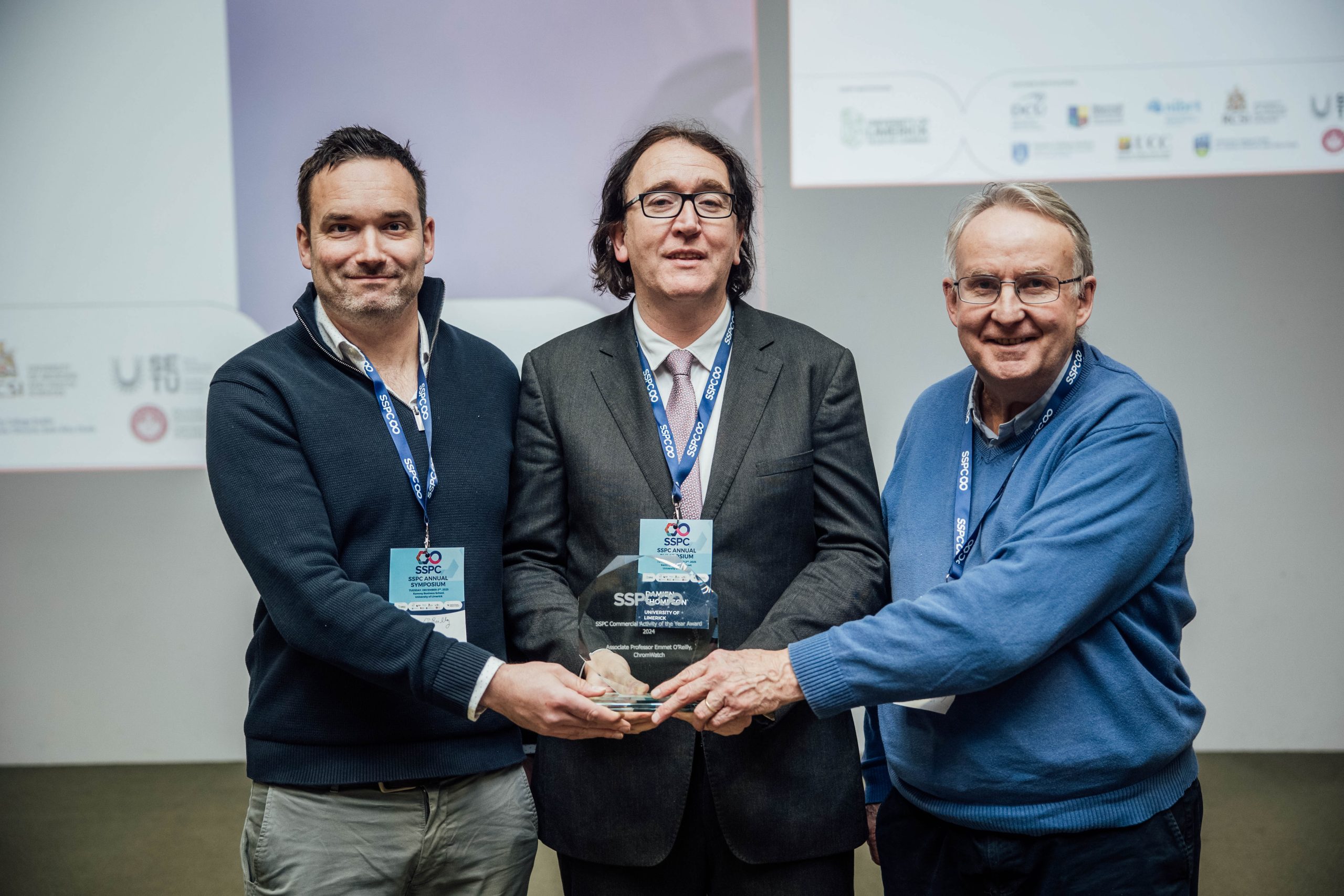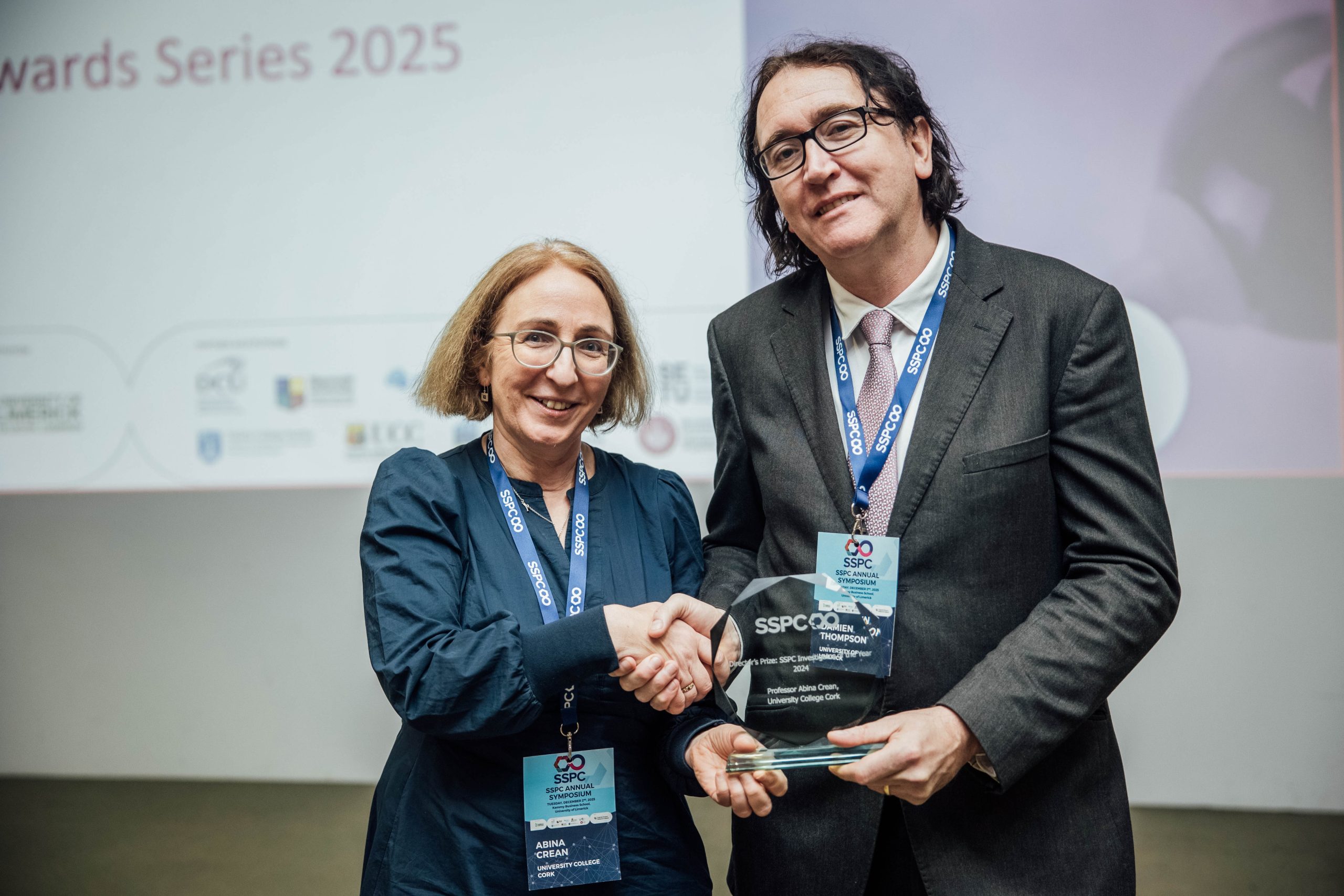Claire Heffernan left for the UK after her PhD Viva in 2018 from SSPC at the University of Limerick. Fast forward five years and Claire is a Senior Solid-State Scientist, AstraZeneca, UK., read about her journey, her PhD experience and her opinion on where pharma is driving towards.
I started my journey at the University of Limerick, where I have a bachelor’s degree in Industrial Biochemistry and a PhD in Crystallisation. My career in SSPC began with my curiosity and fascination in crystallisation when completing my final year project in Industrial Biochemistry which involved crystallising a heme protein. I found this incredibly fascinating and began reading more around the mechanisms involved in the crystallisation of small and large molecules. I wanted to study further in this area, so I was very lucky to get the opportunity to work under Prof. Åke Rasmuson and Prof. Kieran Hodnett within SSPC as a PhD student in Crystallization. I learned how to think, act, read, write, communicate, present, question and answer as effectively as possible while being a PhD student in SSPC, it shaped me for my future role in Industry. As PhD student you are thought how to think critically and to draw your own conclusions, which is very valuable for industry. I am very proud to have been part of such an inclusive, collaborative, and research-driven hub.
I have many fond memories of my PhD days within SSPC in the office area with my colleagues, in the laboratory setting up my experiments and at different conferences with my friends. I was very fortunate to work in a research group that were supportive, friendly, and collaborative. My supervisors were both very generous with their time, they both thought me how to think critically and how to draw my own conclusions, which is very valuable for industry. If I ever felt like I was hitting a wall with my results during my PhD, my supervisors would both push me with my thinking, challenging me in our discussions and would encourage me to find a solution to a problem. This allowed me to build up a lot of resilience overtime which is a valuable skill to have. I am very grateful to have had two supervisors who were very inspiring and supportive during my PhD. I also thoroughly enjoyed the outreach activities, visiting different schools teaching children about science. One excellent highlight was getting to host a science show at the Agricultural Ploughing Championships – these memories will last a lifetime.
I soon learned how important prioritisation of your own time is when starting a PhD. Coming from undergraduate studies where you have a schedule handed to you that tells you where you are supposed to be and what you should be doing every week. In comparison to postgraduate studies where you are responsible to make your own schedule every week was a surprise to me initially. Learning other soft skills such as planning your own experiments, mastering scientific writing, presenting results to a scientific community, and public speaking I learned were all very important during my PhD. I feel very fortunate to have had the opportunity to develop my skills in these areas during my PhD at SSPC as they have helped me in my career in industry to this day.
I feel that research and development in the pharmaceutical industry is the key driver in developing and pushing new medical advances to the market to meet our patients’ needs. I think that dedicated research centres like SSPC offer innovative technology which help to accelerate the creation of novel pharmaceutical drugs to our patients. Having research objectives within research hubs such as SSPC that align with our industrial needs is critical for advancements in our medications today.
With regards to the future of pharma, I feel that digitalisation and new drug modalities are becoming a significant area of focus for pharmaceutical industries. Digitalisation advancements can make our critical manufacturing processes safer, more efficient, and consistent and when implemented correctly, can significantly improve product and process quality. I believe that pharmaceutical industries will be able to treat many diseases that were previously thought to be incurable or untreatable thanks to a wave of innovation in our technologies and to new drug modalities.

